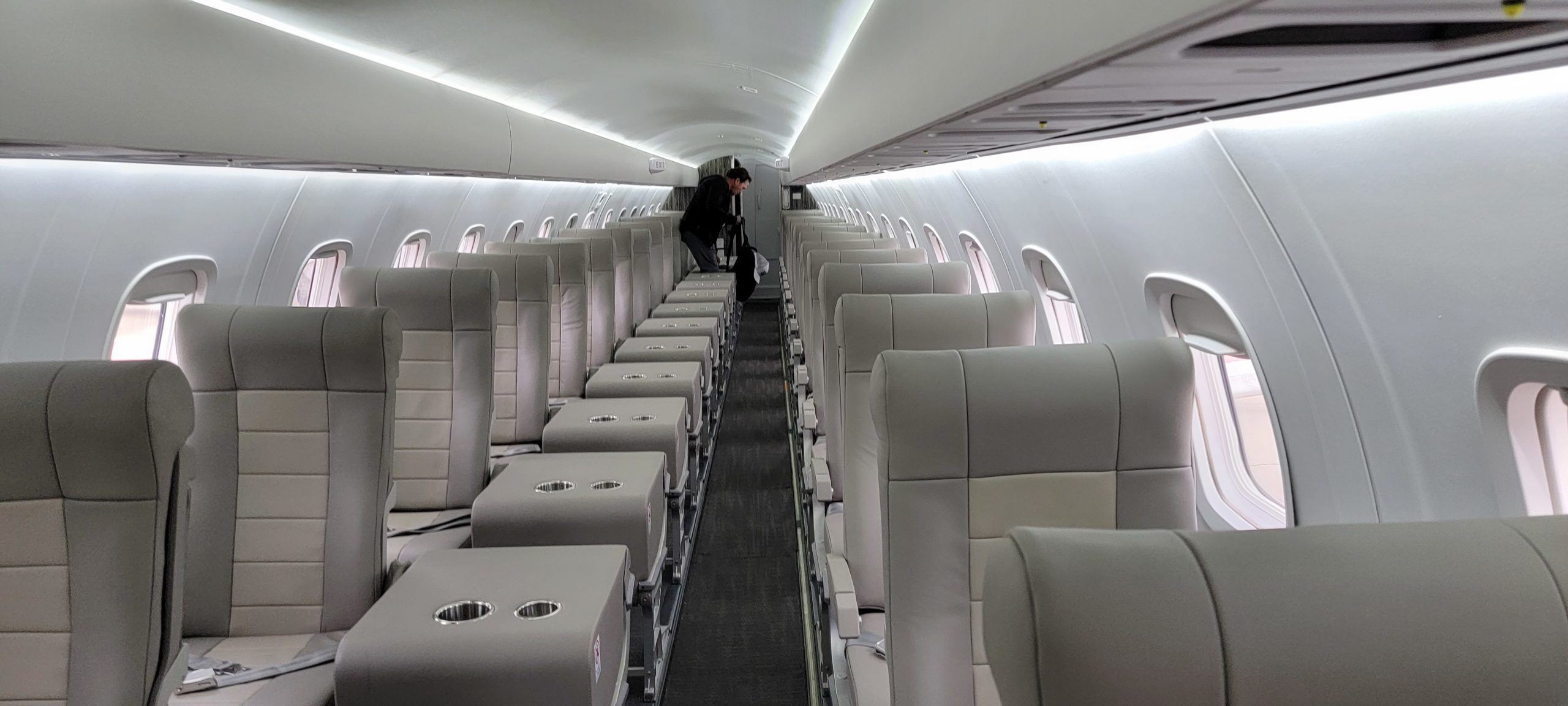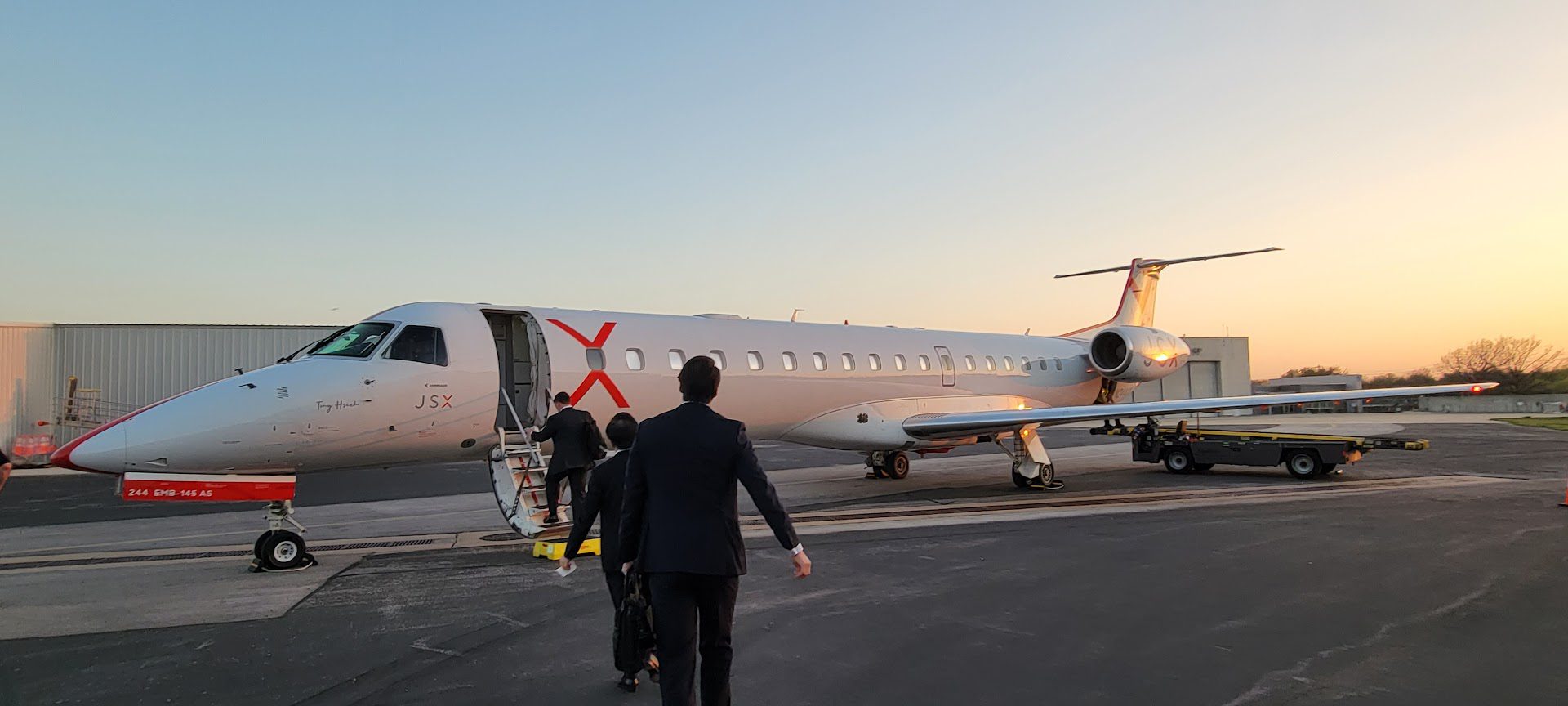FAA Proposes To Ban JSX Because They Offer Passengers A Popular, Quality Product
by Gary Leff on August 31, 2023Due to a lack of pilots, major airlines have left scores of small markets. And the biggest airlines have virtually indistinguishable operations, offering seats with basically the same layout (same width, same legroom within a couple of inches) and very similar service levels.
The largest airports are congested. In some cases this is due to government slot restrictions. In other cases it’s how government-owned airports manage their gates, keeping new entrants out. Either way, it’s difficult for new carriers to break in.
In response to this, new airlines have started – or are trying to start – using rules that were laid out by the FAA.
- Use planes with no more than 30 seats, and you can have co-pilots with 250 hours of flight experience paired with 1,500 hour captains (similar rules to what was permitted at major carriers before 2010, and that many senior pilots flying today started their careers under).
- This can mean taking 50 seat regional jets and outfitting them with just 30 seats, as JSX does. That means ‘everyone flies first class’. JSX offers free snacks, free drinks, free checked bags and StarLink internet which performs better than what any major airline offers because the satellites are in a lower orbit (signals don’t have to travel as far).
- And even these operations can even fly out of private terminals offering greater convenience.
- Regional carrier SkyWest has proposed an operation, entirely legal under current rules, that would follow the JSX model to provide service to small communities that can’t sustain service with large aircraft and $200,000+ per year pilots.
There hasn’t been a single safety issue identified with Part 380 carriers complying with the rules applicable to Part 121 operations. In fact, the rulemaking even notes that “the FAA has adjusted its oversight of these increased operations” and has not expressed a concern about JSX or similar carriers.
The only reason the agency cites for potentially banning their operation is they’ve grown, but that is literally what the rules – and the Department of Transportation – are designed for. According to the government, they’re proceeding “in light of recent high-volume operations” but:
- They step into a breach created by abdication of markets and product offerings of major airlines
- The DOT is supposed to support abundant, safe, and efficient air travel.
There’s no logical reason for this proceeding, at this time, other than that the Air Line Pilots Association doesn’t like to see more co-pilots flying with fewer than 1,500 hours of training because it provides a paid path towards more commercial pilots, helping to address the pilot shortage which gives them leverage in negotiations.
The rule does nothing to promote safety since the hours can be racked up with the same clear air single engine takeoffs and landings from the same airports, rinse repeat. Hours can even be racked up in a hot air balloon. The balloon can even be tethered. The rule is just about creating a barrier of time and cost to become a pilot.
- The Department of Transportation and NTSB have both said they see no correlation between co-pilot flight hours and safety.
- Europe has maintained just as safe an operating environment as the U.S. without adopting a similar rule.
- What the U.S. did at the same time as legislate the 1,500 hour rule for commercial airline co-pilots is also institute stricter pilot rest requirements that do, in fact, matter. Pilot fatigue is a real issue for safety.
While at JSX they have 30,000 hour captains mentoring sub-1,500 hour co-pilots. Their operations call for different experience than is needed to fly transoceanic in a widebody aircraft with hundreds of passengers. They’re flying 30 seat regional jets on largely one and two hour flights in and out of the same airports. You don’t need co-pilots relieving captains for hours at a time. These flights have among the most experience up front among domestic operations. And since 90% of their flights overnight at base, pilots mostly sleep in their own beds – far better for fatigue than at nearly all Part 121 carriers.
American Airlines joined ALPA (and other unions) in calling for JSX to be banned. They don’t like having a premium airline based in their home city of Dallas, employing many of their own retired senior captains and providing a competing product. I chose to fly JSX to Dallas even while I was an American Airlines ConciergeKey member because of the product they offer which I’ve found to be usually cheaper than American’s own premium fares.

JSX has been popular, and they’ve grown. That attracted the attention of ALPA and American Airlines, and the government now proposes to ban them for no other reason than this growth. They do not have safety concerns. It’s purely about changing regulatory definitions to eliminate flying that could serve small markets, and eliminate competition for a major airline. They want to shoot JSX (and by extension SkyWest Charter) dead because they offer too much value to passengers.
This effort is worthwhile to ALPA and American because,
- They may kill a competitor
- Even if they don’t, they distract the airline and cause it to burn cash on lawyers and lobbyists
- And slow down growth, because facing uncertainty new capital expenses likely makes less sense – why spend millions converting planes they may not be allowed to continue operating?

FAA Proposes To Ban JSX Because They Offer Passengers A Popular, Quality Product - View from the Wing
There hasn't been a single safety issue identified with Part 380 carriers complying with the rules applicable to Part 121 operations. In fact, the rulemaking even notes that "the FAA has adjusted its oversight of these increased operations" and has not expressed a concern about JSX or similar...
Last edited:

